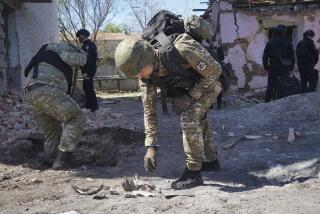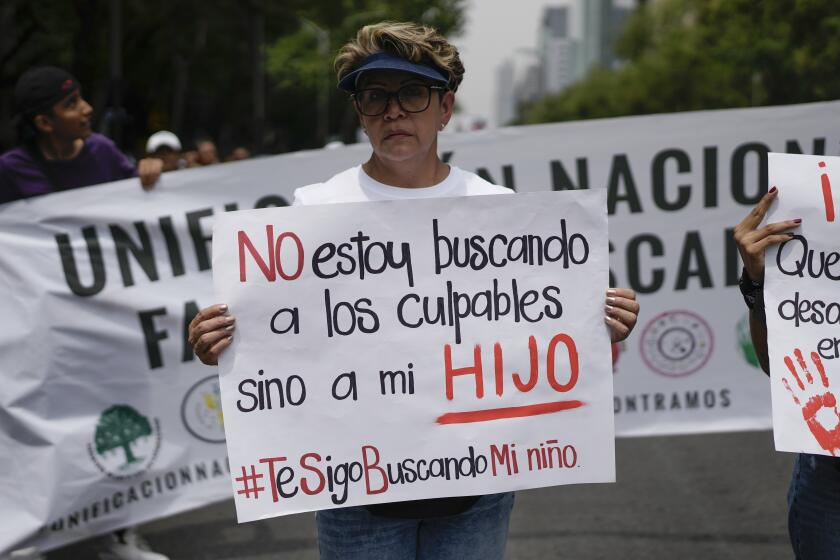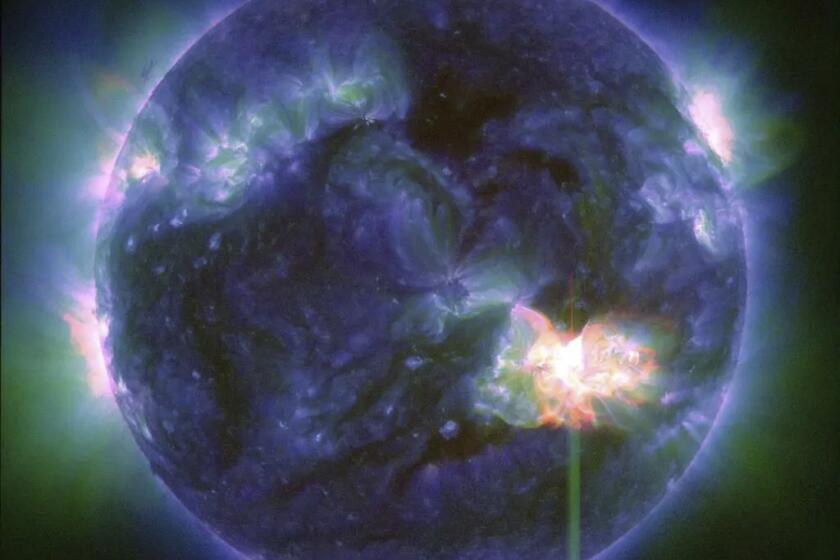Attack May Drive Up Price of Crude
Crude oil prices may rise after boat bombs were detonated within yards of Iraq’s offshore oil export terminals, threatening supplies from the Middle East’s third-largest crude producer.
Iraq, which has the world’s largest oil reserves after Saudi Arabia, has relied on the Basra and Khor al Amaya terminals to export most of its oil because of sabotage along its northern pipelines.
A disruption from Iraq, which accounted for 3% of global supply last month, could further boost prices, already up 37% over the last year.
The Organization of the Petroleum Exporting Countries “is ready to fill any gap,” said Ubayd Saif Nasiri, oil minister of the United Arab Emirates, in a telephone interview from Abu Dhabi. “But OPEC has its limitations: If there’s big damage in more than one place at the same time, then we will have a problem as we are already near our total capacity.”
Crude oil for June delivery fell 1.4% to $36.46 a barrel on the New York Mercantile Exchange last week, still close to a 10-year high. In London, the June Brent crude-oil futures contract fell 1.6% last week to $33.09 a barrel on the International Petroleum Exchange.
Two U.S. sailors were killed and at least four wounded Saturday when one of the boats exploded as they tried to board it, the U.S. 5th Fleet said. Two other boats exploded near a terminal after being intercepted.
This will “remind people that oil supplies from Iraq are vulnerable,” said Mike Armbruster, a broker and analyst with Altavest Worldwide Trading Inc. in San Juan Capistrano. “We’re looking for prices over $40 a barrel. My best guess is that we could see prices rise by about 50 cents on the news.”
Crude jumped close to 2% on Oct. 7, 2002, the day suicide bombers blew a hole in the side of a French oil tanker off the coast of Yemen.
OPEC, which last month held about 3 million barrels a day in extra production capacity, attempted to calm oil traders ahead of the opening of markets today.
“At all times, we are ready to make sure that shortages caused by events like this are taken care of by OPEC,” said OPEC spokesman Omar Farouk from the 11-member group’s headquarters in Vienna.
OPEC probably will reduce output by 3.2% this month, according to PetroLogistics Ltd., a Geneva-based consulting company.
The 10 OPEC members with quotas -- all except Iraq -- will produce about 25.15 million barrels a day in April, the company said last week.
Saturday’s suicide assault on the terminals raised concern that Iraqi insurgents were looking for new ways to hamper coalition efforts to generate money needed to pay for the country’s reconstruction.
Freight and shipping insurance rates from Iraq, which already doubled in the last month, may rise further after the attack, insurance and shipping officials said.
“This is not just another attack in Iraq; it’s a serious strike at the heart of the country’s ability to generate income,” Toby Sizeland, Norwich Union’s marketing and marine manager for the gulf, said in an interview. “The number of insurance companies willing to back trade with Iraq is already small -- it just got smaller.”
The Dubai, United Arab Emirates-based regional office of Norwich Union, a unit of Britain’s second-largest insurer, Aviva, is offering Iraqi coverage at a cost of about 1.5% of the value of a shipment, up from 0.7% a month ago.
More to Read
Start your day right
Sign up for Essential California for news, features and recommendations from the L.A. Times and beyond in your inbox six days a week.
You may occasionally receive promotional content from the Los Angeles Times.






